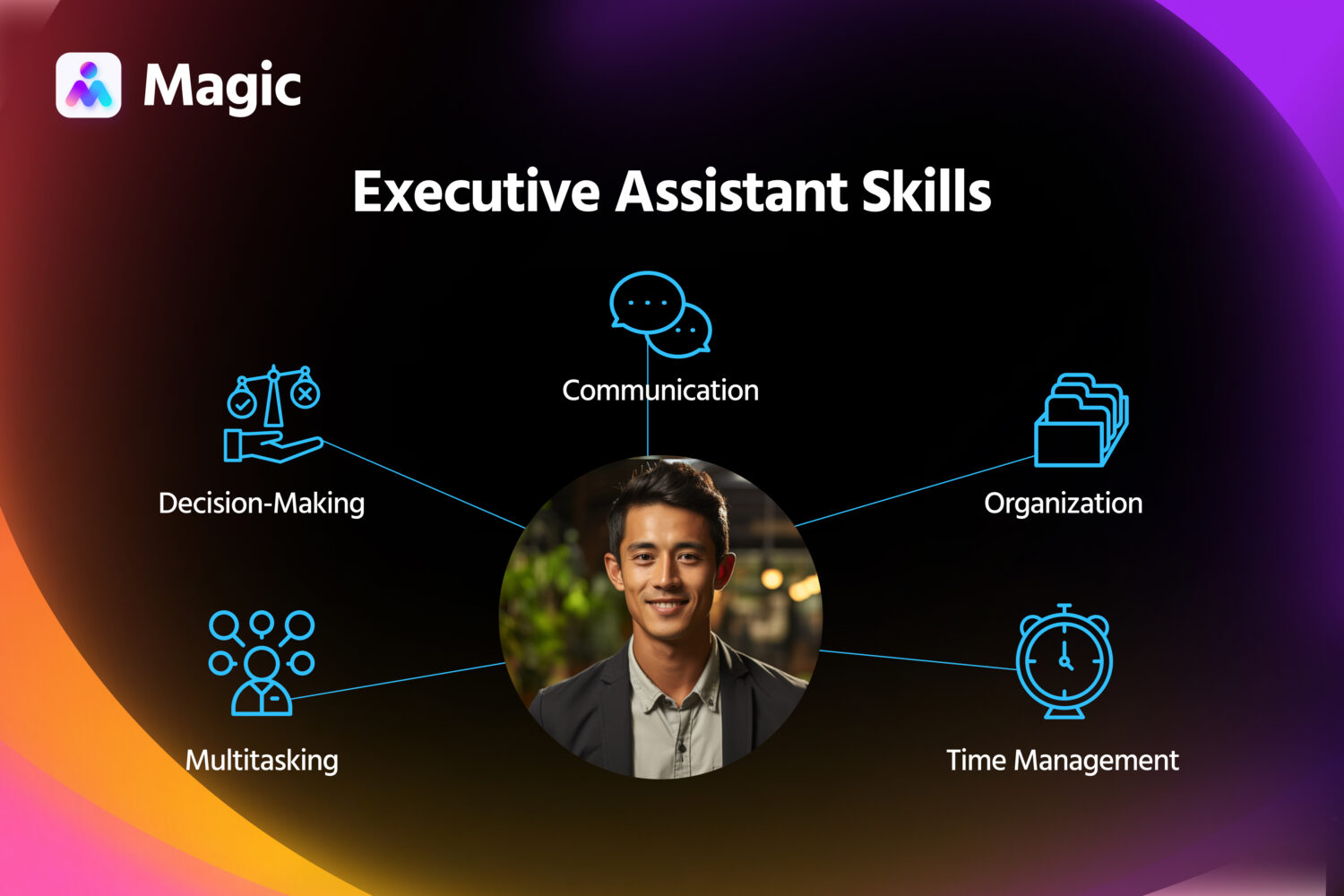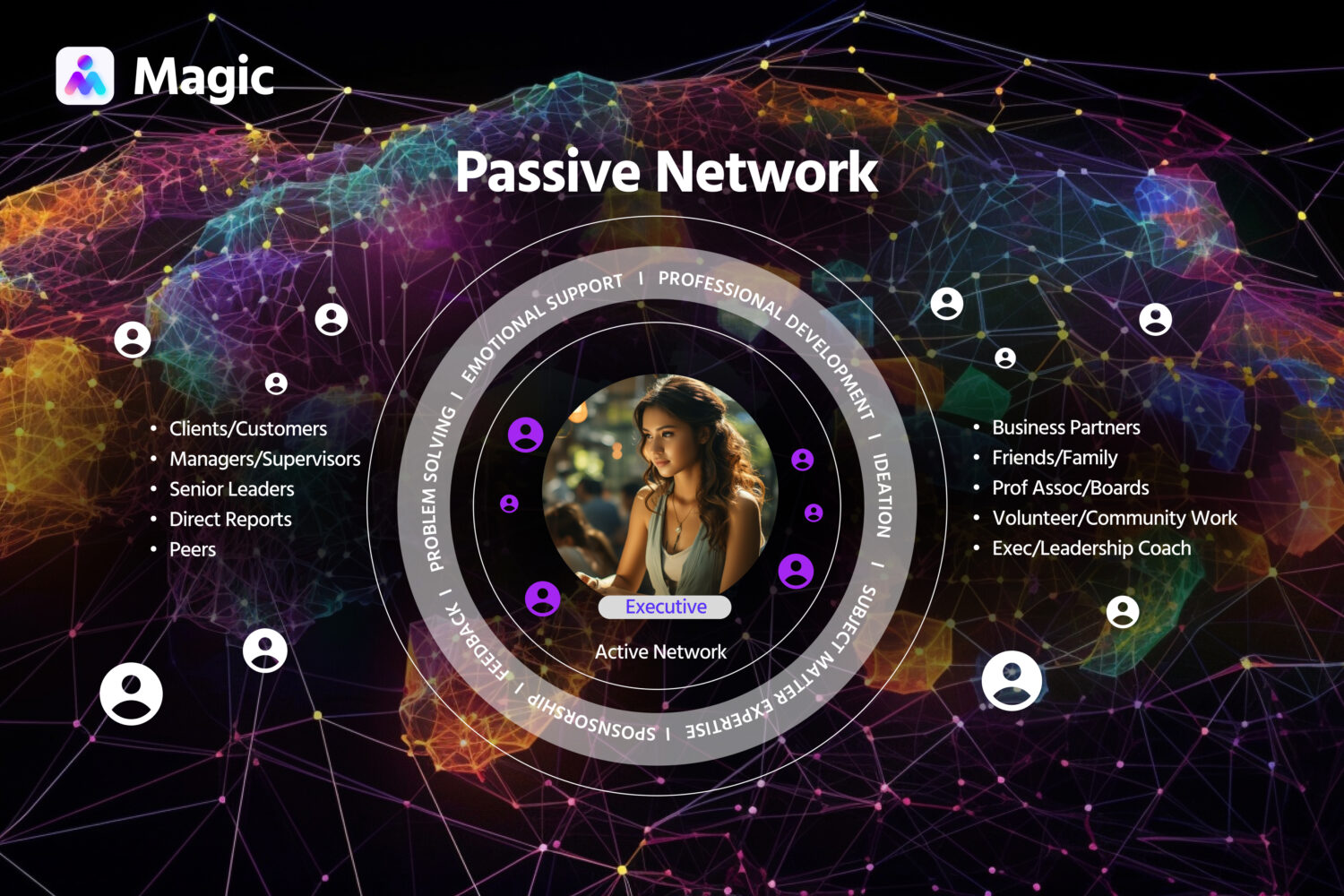The executive assistant (EA) has long been a fixture of the C-suite office. These days, though, you may not see them quite as often, because the role, like many others, has widely gone virtual. Where an EA might have managed the traffic of paperwork and visitors to an executive’s office, the virtual executive assistant now manages messages, appointments, and activities—saving them hours of work each day.
You might be wondering: just how do virtual assistant services improve day-to-day work so dramatically? Ultimately, it’s all about time and priority.
They say that everyone has the same 24 hours in a day, but an EA makes sure every single hour you spend on the clock is spent deliberately so that you never miss the important things. Read on to see seven ways by which they do just that.
- A virtual EA manages your messages, appointments, and activities—saving you hours of work each day.
- EAs must adapt to their client’s approach to work and apply their own expertise to solve problems and manage projects or other staff.
- More than other VAs, executive assistants adapt to how you work, making them better suited to tasks requiring lateral thinking and experience in the industry.
What is a Virtual Executive Assistant?
An executive assistant serves as an adjutant to a high-ranking company officer. Much of their day-to-day work is administrative or clerical, but they also carry out work related to project management and troubleshooting.
In general, an EA can be said to work as an extension of an executive: they serve as a point of contact, make decisions on their behalf to streamline operations, and ensure projects under the officer’s control are all progressing smoothly.
Virtual executive assistants fulfill this role remotely, managing cloud-based calendars, sorting through email and social inboxes, and keeping virtual collaboration platforms in order.
Because of the flexibility that remote work affords them, virtual EAs are available for part-time work, and some spread their time working for multiple officers, either in the same company or in different ones.
What Sets an Executive Virtual Assistant Apart from Other VAs?
At a glance, an EA’s work may look a lot like that of a typical administrative assistant. What sets a virtual EA apart from other VAs, though, are their experience and their insight.
More than other VAs, EAs must adapt to their client’s approach to work. They must be able to understand their executive’s objectives, constraints, and preferences. They also bring their own organizational experience to the role, serving as decision-maker, project manager and problem-solver when their executive is busy with other matters.
In sum, executive virtual assistants have the following advantages over other VAs:
- More experience (and possibly education) in business administration or management
- Long-term commitment to understanding an executive’s role and approach to work
- Familiarity with c-suite level work and interacting with other executives or their offices
- More lateral thinking, better judgment, and autonomy
Virtual Executive Assistant Services to Make Your Life Easier
You’re here, of course, for the specifics—so we’ve compiled a short list of some methods that virtual EAs use to maximize their clients’ time and amplify their focus.
Master Your Time and Scheduling
Time is one of an executive’s tightest resources, so unsurprisingly, many virtual EAs start with their client’s calendar, managing what they do, when they do things and, crucially, when they don’t do certain things. One way they do this is by preparing what some call a master calendar.
A master calendar provides the overall structure for your day-to-day work. It’s divided into blocks of time, into which your EA can arrange specific events or tasks. Some blocks are for meetings, others are for focused work, and still others are for personal matters such as fitness, study, or time with family or friends.
In planning a master calendar, many EAs follow certain principles for maximizing time. For example:
- Fit all meetings into a window of six hours per day
- Avoid awkward breaks between meetings (too long for simply moving venue to venue, but too short to get anything meaningful done)
- Ensure blocks of 90 minutes or more of uninterrupted time daily for deep work (coinciding with your hours of peak focus)
- Understanding the “pillars” of your daily/weekly schedule—things that keep you motivated, focused, and energized—and preserving time for them
A master calendar isn’t a one-and-done matter. Over time, your EA will review patterns in your work schedule—things you often reschedule or run late for; items you breeze through or get stuck on—and adjust your master calendar accordingly.
Handle Communication Like a Pro
Few things ruin a routine, quite like answering messages. While reading a message and firing off a reply might take just a few minutes, the “switching time”—that is, how long it takes to refocus on whatever you were doing before—can easily add up to 15 or 20 minutes. And not all of those messages would have been worth checking in the first place.
An executive assistant can act as triage for your inboxes, using automated filters for initial screening, and then applying their own judgment to determine what to do with the messages that get through. They can:
- Alert you to urgent messages
- Flag important ones for you to personally review later
- Summarize less important messages
- Take messages requiring others’ expertise and forward them to the relevant people
- Send basic replies and pre-draft responses for you to finalize later
- Follow up by message or call regarding ambiguous inquiries
All you need to set this up is to give your EA a quick intro to your mail priorities (along with a traditional onboarding). While they may need to clarify some classifications early on, they’ll eventually get a handle on what response is needed for any given message.
Coordinate Your Meetings Smoothly
Meetings: as much as nothing gets done without them, all too often, nothing gets done during them either. Unless, of course, everyone goes into it with a clear role and agenda. And an EA can make sure that those are the only sorts of meetings you get into.
If You’re Setting the Meeting:
- You can tell your EA what you need to cover, and they can draft that into a proper agenda, assigning topics or talking points as needed to the various attendees.
- Your EA can draft a presentation and discussion notes for you, as well as collect any reference material you’ll need
- They can pick a schedule that works for all necessary attendees, prepare a venue, and send out invitations
If You’re Invited to the Meeting:
- Your EA can clarify what your role in the meeting is; if it’s ambiguous or if you play no active role, they can decline on your behalf
- If the meeting is worthwhile, your EA can prepare a presentation and notes as needed
- They can also compile relevant information on other attendees, so you know who you’ll be talking to
Organize Your Travel Arrangements
Planning business trips can be quite time-consuming: there are dozens of details to consider, and even small misalignments can cost a lot, either in funds or in time. It should come as no surprise that travel arrangements are one of the tasks most often delegated to EAs.
The way this happens is quite simple:
- You tell your EA the basics of your trip and what you need readied—lodgings, transport, dining, recreation, etc.—as well as any preferences or constraints
- Your EA researches options and presents them for your review.
- You give feedback: asking for clarifications, adding new specifications, etc. Alternate this and the previous step as needed.
- Once you’ve selected any options, your EA makes final bookings or reservations.
- Your EA can then compile all necessary booking documents, contact information, and other relevant info—and then you’re all set for your trip!
EAs can also help you prepare in other ways, such as preparing documents for visa applications, arranging for travel SIMs or roaming plans, looking into currency exchanges, and more.
Networking
A remarkable 80% of executives consider networking essential—opening doors for business plans and personal career progress—yet 38% have a hard time keeping up with their network. If you’re part of that 38%, good news: an EA can help you out on that front, too.
Much of professional networking is keeping tabs on information streams and maintaining regular contact—both of which are in an EA’s realm of expertise. They can help you stay up to date with important contacts by:
- Maintaining and segmenting your contacts list
- Keeping up with major deals, promotions, assignments, etc. by scanning the news and social media
- Informing you of occasions for greetings, such as birthdays, weddings, bereavements, and so on
- Scheduling calls or casual meetings to nurture relationships with peers or counterparties
Sticking to Your Goals
Just as projects, departments, and even entire businesses undergo review, assessing your own growth and practices can help you improve. Of course, it can be difficult to take a clear look at yourself. This is where an EA can come in handy.
On the level of day-to-day work, an EA can keep you on track with your goals, ensuring you make steady progress on them. This holds true for professional projects, as well as self-development goals such as fitness or study.
Project Management and Review
In the long run, an EA can also help you identify patterns in your work. They can tell you, for example, if certain meetings tend to run long or if you’ve misjudged certain estimates in the past.
You can also schedule periodic meetings with your EA to review your own office’s progress and development the way you would any other group. And while you could run such assessments on your own, two heads are better than one.
This sort of analysis, blending high-level trends with closer looks at specific projects, can help you refine your processes and strategies for running future projects.
Work Smarter with Virtual EA Services
Ultimately, an executive assistant’s role is to make you a more effective executive. They can take the clutter off your to-do list, help you lean into your strengths, and maximize good habits.
Working with an EA means working smarter. And with virtual administrative assistant services readily available, it’s a great way to create a more efficient, effective work environment—not just for yourself, but for the teams that will be relying on your leadership.
Hire a Virtual Executive Assistant through Magic
Looking to hire a virtual executive assistant? Magic can find you one!
Our virtual assistant services are set up to be as flexible and frictionless as possible. Just tell us what you need in an assistant, and we’ll find the right candidate for you in no more than a week. We screen all staff for both skills and attitude to ensure you work only with the best.
Ready to start seeing results? Schedule a call with us to get started.








